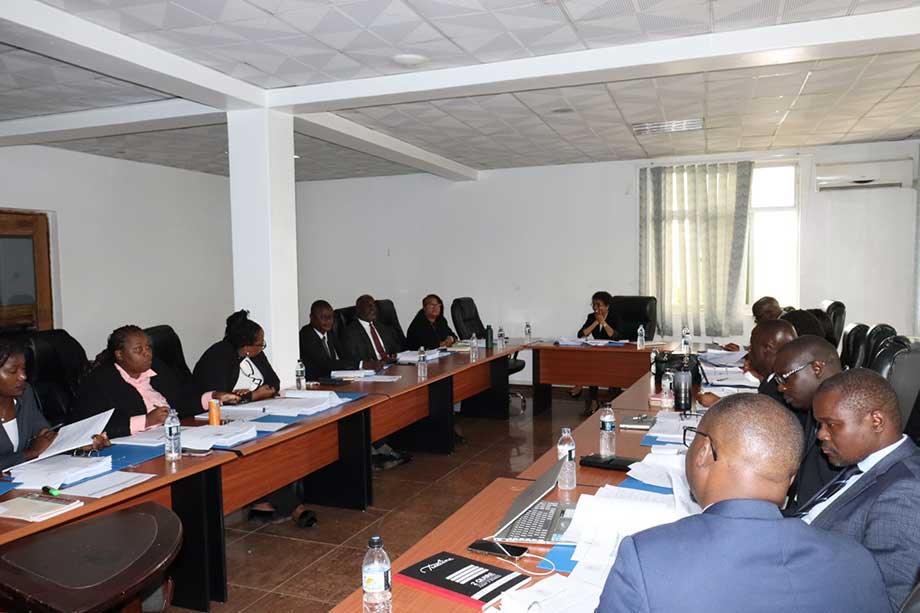Refugees Act
Review of the Refugees Act
 The review of the Refugees Act commenced in 2023. The purpose of the review process is to align the Act with the Constitution, applicable international law, and international best practice and standards in refugee protection and management.
The review of the Refugees Act commenced in 2023. The purpose of the review process is to align the Act with the Constitution, applicable international law, and international best practice and standards in refugee protection and management.
Background
The Refugees Act, Cap. 15:04 was enacted on 26th April, 1989, in response to the significant influx of refugees from Mozambique. Prior to the enactment of the Act, Malaŵi had no legislation to govern the management of the refugees that country had been hosting since 1987. The situation prompted the country to rectify the 1951 Convention Relating to the Status of Refugees, its 1967 Protocol, and the 1969 Organisation of African Unity. The Act followed in April 1989, to align Malaŵi ’s laws to these regional and international commitments.
Despite its intentions, the Act has many gaps, particularly regarding the management of refugees under temporary circumstances. The Act primarily addresses administrative issues and does not adequately respond to the evolving refugee situation in Malaŵi. Furthermore, there have been several critical legal policy developments since the enactment of the Act, including the adoption of the 1994 Constitution, which emphasises, among other things, non-discrimination and human dignity. Other laws that impact refugee rights have also been enacted, such as the Child Care, Protection and Justice Act, Cap. 26:03; the Gender Equality Act, Cap. 25:06; the Trafficking in Persons Act, Cap. 7:06; and the National Registration Act, Cap. 24:01.
In addition, Malaŵi ’s commitment to international treaties, such as the United Nations Convention against Transnational Organised Crime and the Protocols addressing human trafficking and migrant smuggling, further necessitates a reassessment of the Refugees Act.
Submission
The special Law Commission received submissions for review of the Act from various stakeholders, including the Ministry of Homeland Security and the then office of Secretary and Commissioner for Poverty and Disaster Management Affairs. These inputs highlight the urgent need for a comprehensive review to address both existing gaps and emerging issues related to human trafficking and the smuggling of migrants.
The Current Refugee Scheme
The current refugee scheme in Malaŵi faces significant challenges, prompting a much-needed review of the outdated Refugees Act. One critical issue is the alarming backlog of Refugee Status Determination Applications that has resulted in some refugees waiting up to 20 years for a resolution. The situation has led to severe overcrowding at Dzaleka Refugee Camp. This prolonged uncertainty exacerbates the strain on already insufficient resources, leaving refugees without adequate sustenance or welfare. Additionally, the Refugee Department, though central to refugee management, lacks an official legal establishment, existing only administratively, as the Refugees Act only establishes a refugee committee. This institutional gap impedes effective governance, as evidenced by the absence of clear administrative authority, resulting in inefficiencies such as delays in processing refugee claims and inconsistent delivery of services. These systemic weaknesses underscore the need for a more robust and inclusive framework for refugee management.
Consultations
Since the commencement of the review process, the Special Law Commission has held four (4) commission meetings. The Commission has also conducted a site visit to Dzaleka Refugee Camp and held consultations in Dowa, Nkhotakota, Karonga, Mwanza, Mangochi, and Chitipa District.
The Commission intends to further hold Commission Meetings and consultations with the Security Cluster, Government Ministries (OPC, Ministry of Foreign Affairs, Ministry of Homeland Security, Ministry of Justice, Ministry of Defence, Ministry of Labour, Ministry of Trade, Ministry of Education, and Ministry of Local Government), and study visits to Uganda and Zambia.
Funding: UNHCR
Relevant documents: Issues paper, Discussion paper
Stage: Consultations
Chairperson: Honourable Justice Michael Tembo, Judge of the High Court
Programme officers: Mr. Robert Kandulu, Deputy Director of Law Reform;
Ms. Tapiwa Banda, Chief Law Reform Officer;
Ms. Ndamo, Principal Law Reform Officer; and
Ms. Angella Mwafulira, Principal Law Reform Officer.

